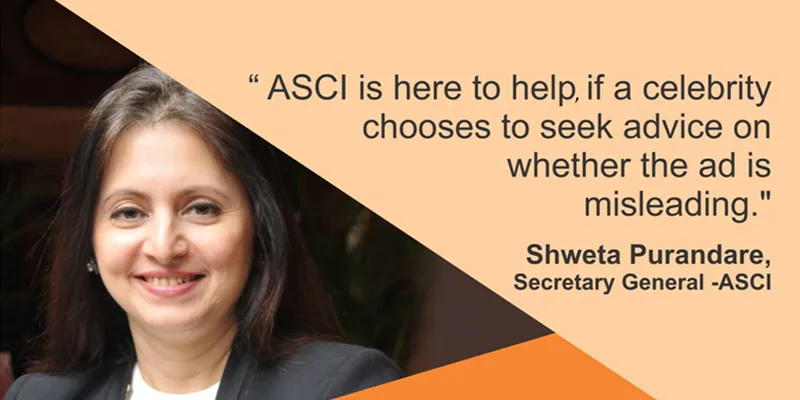Restoring consumer sovereignty - the Consumer Protection Bill, 2018
When Consumer Affairs Minister Ram Vilas Paswan introduced a new Consumer Protection Bill in the Lok Sabha on January 5, 2018, it might have sent a few shivers down manufacturers, traders, advertisers, and endorsers’ spines in the country on an already cold January day. The Bill will replace the existing act of 1986, and is aimed at providing protection of interest for consumers.

Some of the highlights of the Bill were the consumer protection authority, product liability, and implications for advertisers and endorsers on misleading advertisements.
About misleading advertisements Chapter III, 21, of the Bill says :
- (1) Where the Central Authority is satisfied after investigation that any advertisement is false or misleading and is prejudicial to the interest of any consumer or is in contravention of consumer rights, it may, by order, issue directions to the concerned trader or manufacturer or endorser or advertiser or publisher, as the case may be, to discontinue such advertisement or to modify the same in such manner and within such time as may be specified in that order.
Consumer Protection Authority
The bill looks at the creation of a central Consumer Protection Authority to address false or misleading advertisements. The Authority can impose a penalty extending to Rs 10 lakh, and a further penalty of up to Rs 50 lakh for every subsequent contravention.
A misleading advertisement could attract a two-year imprisonment and a further term of five years for every subsequent violation.
Product Liability
The bill is tough on defective products. If a product has a manufacturing defect or a defect in the design or deviates from manufacturing specifications, both the manufacturer and seller could become liable. It also takes a strong stance on adulteration, and imposes both imprisonment and a fine for storing, selling or distributing or importing products that might have adulterants.
Celebrity endorsement
The bill has provided for a fine of up to Rs 50 lakh for celebrities appearing in misleading advertisements, which, of course, is unlikely to bother the top celebrities since it represents only a fraction of their earnings through endorsements.
What might have seemed to be harsh to them was that celebrities could face up to three years imprisonment for appearing in misleading advertisements. No doubt, agents of celebrities would seek clarification on what exactly is misleading advertising. The Advertising Standards Council of India, the self-regulatory body of the advertising industry, quickly responded on social media with an offer to advise celebrities if an ad is misleading.

Quite simply, misleading means giving the wrong idea or impression about something. In the case of products, if the claims made in advertising are not honest and truthful, it would mean an advertisement is misleading. Anyway, the new act is likely to put the brakes on blindly accepting every brand offer that meets the celebrity’s standard fee.
The Bill clarified "misleading advertisements" in Chapter I ( 28 ) as under
(28) “misleading advertisement” in relation to any product or service, means an advertisement, which—
(i) falsely describes such product or service; or
(ii) gives a false guarantee to, or is likely to mislead the consumers as to
the nature, substance, quantity or quality of such product or service; or
(iii) conveys an express or implied representation which, if made by the manufacturer or seller or service provider thereof, would constitute an unfair trade practice; or
(iv) deliberately conceals important information;
Celebrities are also being careful about how brands affect their own brand equity. The Consumer Protection Act has made celebrities more accountable for the products they endorse over the last few years.
Equally, celebrities have become choosy about the products they endorse for other reasons as well. When Virat Kohli refused to endorse Pepsi last year, he was actually being careful about the repercussions on his own image. Today's celebrities are more watchful of social media, as it has a huge impact on their own personal image.
The Bill, in other words, is a welcome change for consumers in the country, because it looks at their interests more closely than before. And it brings India at par with the developed world on the protection of consumers in the country.
Connect with me on twitter
(Disclaimer: The views and opinions expressed in this article are those of the author and do not necessarily reflect the views of YourStory.)







